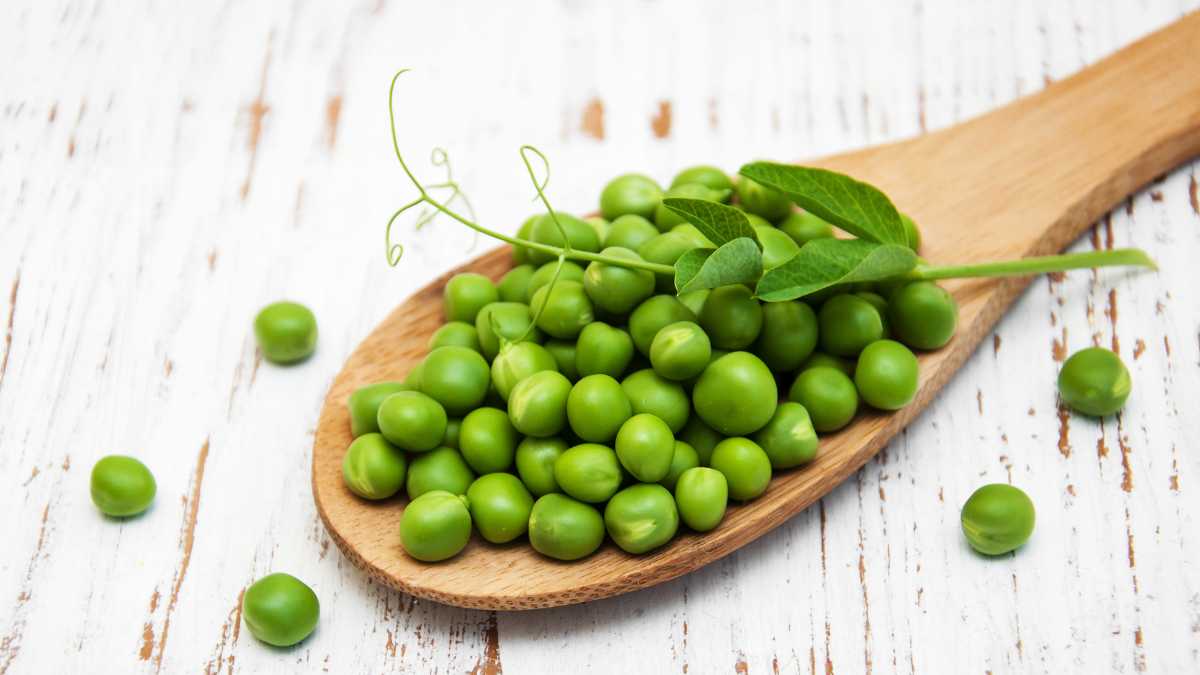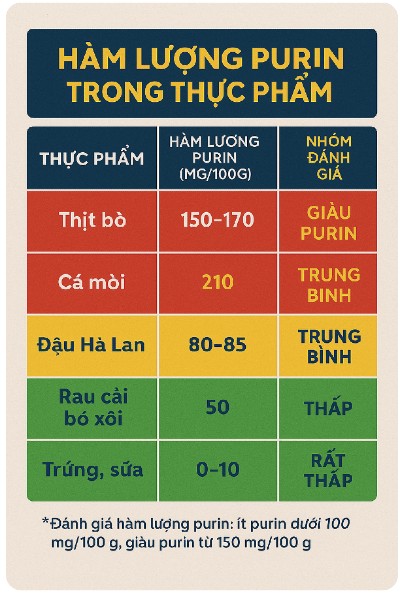Understanding uric acid and eating peas will help people at risk or with gout choose the most suitable foods for their daily meals.
Under normal conditions, uric acid is a natural product formed from the breakdown of purines in body cells as well as many other foods. When uric acid levels in the blood reach a stable level, the body will excrete this amount through the kidneys. However, when too much is accumulated, urate crystals can form in the joints, leading to gout along with complications such as arthritis, kidney stones and high blood pressure.
According to information from the Mayo Clinic, diet is one of the important factors affecting uric acid levels. Foods rich in purines, such as red meat, seafood and animal organs, can cause a rapid increase in uric acid levels. In contrast, beans, vegetables, and whole grains are less affected to this extent.
Peas contain abundant nutrients but are a food rich in purines
According to U.S. The Department of Agriculture (USDA) said that 100g of peas contain about 84mg of purines, classified as foods with average to high purine levels. When purines are metabolized, the body will produce uric acid. Therefore, for people who are controlling gout or have high uric acid levels in the blood, the use of peas needs to be moderate.
However, peas also have many benefits:
It provides about 5-6g of plant protein per 100g, helping to replace protein from red meat. Soluble fiber helps limit the amount of sugar and fat absorbed, while maintaining stable energy levels after eating.

In addition, this preparation is rich in vitamin K, B1, folate along with minerals such as potassium and magnesium, which provide benefits for heart health as well as energy metabolism.
Information published in the Journal of Nutrition & Metabolism shows that plant-based purines such as those from peas have less influence on the increase in uric acid than animal purines, because the body processes and metabolizes them differently.
Should you avoid peas when suffering from gout?
You don't need to completely eliminate peas from your meals. It is important to control your intake.
According to recommendations from the Arthritis Foundation, people with gout can eat foods rich in plant purines such as beans, beans, peanuts and even peas. Consume a small amount because the risk of increased uric acid is not as high as when eating meat or seafood.

To minimize the risk, you can:
Boil or steam peas instead of stir-frying with a lot of fat.
Make sure to drink enough water (2 to 2.5 liters per day) to support the process of excreting uric acid through the kidneys.
Minimize consumption of alcoholic beverages, alcohol, red meat, organs and seafood - foods high in purines that are not good for health.
Increase the intake of green vegetables, fruits and whole grains, foods with low uric acid levels help maintain nutritional balance.
When should you check uric acid levels in the blood?
Experts recommend that uric acid testing in the blood should be done every 6 to 12 months, especially for people with a history of gout, obesity or taking diuretic drugs. You should seek advice from your doctor to receive appropriate treatment instructions.
Balancing the diet is a decisive factor in controlling uric acid levels
If you eat peas too much, they can increase uric acid levels in the blood of sensitive people. Therefore, you need to eat in moderation, choose a variety of foods, combine drinking enough water and exercising gently to help the body eliminate uric acid naturally.
A balanced diet rich in vegetables and low in purines, along with a healthy lifestyle will help you control uric acid levels.












